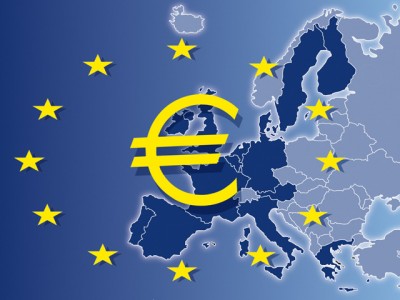EU referendum: the pros and cons of Britain leaving Europe
It appears the membership of Britain in the European Union will be determined by a referendum in 2017 after the Conservative victory in the recent elections. Prime Minister David Cameron made a pledge to deliver the votes even as he had to deal with pressure from inside and outside his own party.
As part of this promise, the prime minister has been campaigning for a renegotiation on the membership of the United Kingdom in the EU. He identified four critical areas for reforms to be conducted. However, the plans of Cameron may be undermined by the reluctance of the union in implementing changes in its current setup.
The following are the advantages and disadvantages of Britain leaving the European Union.
Losing its negotiating power may be considered as a disadvantage when Britain leaves the trading bloc, but it can also take advantage of being able to establish trade agreements on its own with non-EU countries. Britain can follow the lead of Norway, Ukip leader Nigel Farage said. While Norway can access the unified market, EU laws on certain issues are not applicable to it. The Economist indicated that even if Britain leaves the EU, it will still continue to be affected by the economics and politics of the region. It will also lose its influence on these issues, The Economist added.
Research conducted by Open Europe revealed that Britain may lose up to 2.2 percent of its GDP by 2030 if it decides to leave the union. However, it is also possible for its GDP to increase by 1.6 percent if it can establish a free trade agreement with other European countries.
While the free movement of people within the European Union provides numerous job opportunities to UK workers, the UK will lose the ability to secure its own borders if it continues to remain with the EU, according to the Ukip. On the other hand, Professor Adrian Favell said travel restrictions in Britain may prevent the entry of the most talented individuals into its borders.
Critics of the union contend that small and medium-sized companies have to bear the burden of EU regulations. Leaving the union will be advantageous for these companies since they have no trading activities with other countries. On the other hand, unemployment in Britain may rise if multi-national companies opt to leave Britain and set up operations in EU countries. Farmers in Britain may also lose subsidies from the EU worth billions.
Leaving the European Union will also reduce the military influence of Britain since its detachment from Europe may reduce its importance to the United States as an ally.
The Economist listed down a number of advantages of an exit by Britain from the European Union. Aside from reclaiming its territorial fishing waters, Britain can also promote an unrestricted economic market and remove limitations on the number of hours employees can work each week. It can also escape from renewable energy campaign of the European Union. In this situation, London will become an unrestricted center for emerging-market finance, The Economist added.
However, it should also be taken into account that Britain will become an outsider with limited access and influence within the European Union. Before Britain decides to leave the union, it should take into account that it will not be easy to go back once it exits the European Union.
For the moment, it remains uncertain when an EU referendum will be held but Cameron already committed to hold it by 2017. The referendum will essentially ask voters whether the United Kingdom will continue to be a member of the European Union or not.
Most recent opinion polls have shown that majority of Britons favor an exit from the EU. A survey conducted by YouGov showed 40 percent are in favor of an exit while 38 percent want Britain to continue its EU membership. On the other hand, 16 percent of the participants are undecided and 6 percent indicated that they will not vote in the referendum.
A recent survey conducted by the Financial Times showed that 63 percent of businesses think Britain will be adversely affected if it leaves the EU, which is 4 percent higher than the result in 2014. Business executives across Europe share the sentiment as two-thirds said Europe will be negatively affected if Britain leaves the EU.
While the European Union is the largest single trading partner in the world, only two individual EU countries are part of the top five trading partners in the world. Business leaders opposed to the EU said it is better to trade directly with China without involving the EU. China is the third largest trading partner of the EU. Companies located outside Europe are also concerned about the possible exit of Britain from the EU since their access into the EU market may be limited when this happens. Standard & Poor’s indicated that a British exit from the EU may result to the transfer of the headquarters of some banking groups from Britain to other countries within the EU.
Due to this, it is necessary for Britons to consider these points before they make their decision during the referendum on whether Britain should remain with the European Union or not.
The post EU referendum: the pros and cons of Britain leaving Europe appeared first on Forex.Info.
Source:: EU referendum: the pros and cons of Britain leaving Europe












